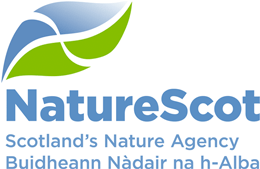16 February, 2015
Lewis and Harris goose management scheme set for take-off
A new three year pilot project to manage the greylag goose population of Lewis and Harris has been launched this week, Scottish Natural Heritage (SNH) confirmed today.
The initiative sees funding of a co-ordinated shooting effort to allow islanders to control geese. Its aim is to reduce agricultural damage seen by crofters and farmers while maintaining a sustainable goose population. Shooting commenced on 16 February and will continue through to 31 March. A further round of shooting is planned for the autumn.
This pilot scheme is being trialled in Scotland with the support of Scottish Natural Heritage (SNH) and is guided by the National Goose Management Review Group (NGMRG).
Similar projects are underway on Uist, Coll and Tiree, and Orkney. These have growing populations of greylag geese which cause significant damage to silage and other crops.
The aim is a sustainably managed goose population which generates income for local people. Landowners, farmers and township clerks in Lewis and Harris have been asked for permission to access their ground for shooting. Access has been permitted across most of the area in question.
Stornoway-based Roddy MacMinn of SNH confirmed: “It is clear that the greylag goose population on Lewis and Harris has increased significantly in recent years. Since we began an annual count in 2010 numbers have increased by more than 45%, and we now estimate the population to be in the order of 5850 birds.
“We are responding to a request from the local goose management group to help them manage that goose population to a more sustainable level.
“The work will be undertaken by experienced volunteer shooters following established best practice methods, and overseen by staff within SAC. Our initial target is for an additional 2200 geese to be shot this year as we aim to deliver a significant population reduction by 2017.”
The project will also trial the sale of goose meat under licence. Trained hunters and hotels and restaurants will be licenced to sell the meat generated by the pilot. Butchers and retail premises may also be licenced if they apply to SNH.
This will encourage sustainable use of the carcasses, give financial benefit and supply a healthy, protein rich and locally sourced food for islanders. Recipes using wild goose meat are available on the Scotland’s Natural Larder website.
In Lewis and Harris the project has been developed and managed in conjunction with the Local Goose Management Group which includes representatives from SGRPID, CnES, the Scottish Agricultural College (SAC) and crofters, farmers, and landowners. This initiative has the support of the British Association for Shooting and Conservation (BASC) who will be working closely with all those involved in this new form of adaptive management control.
The National Goose Management Review Group (NGMRG) recommends each of the pilots are guided by the same three objectives of national goose policy which underpin existing goose schemes.
This will meet the UK’s nature conservation obligations for geese within the context of wider biodiversity objectives; minimise economic losses experienced by farmers and crofters as a result of the presence of geese, and maximise the value for money of public expenditure.
Licences to sell goose meat will be restricted to Lewis and Harris, and tightly controlled. Specific licences will be issued to named hunters and retail premises for them to sell wild resident greylag goose meat. A general licence issued by SNH will allow restaurants, cafes, hotels, and other caterers to sell wild goose meat in prepared meals on Lewis and Harris.
Under normal circumstances the sale of wild goose meat is prohibited through section 6 of the Wildlife and Countryside Act 1981. Before taking the decision to allow the sale of wild greylag goose meat in Scotland, the Scottish Government consulted with the European Commission to ensure compliance with European legislation for the conservation of wild birds (the EU Wild Birds Directive).
Directive 2009/147/EC of the European Parliament and of the Council on the conservation of wild birds, commonly known as the Birds Directive, protects all wild birds, their nests, eggs and habitats within the European Community.
Contact information
- Name
- SNH Media
- snhmedia@snh.gov.uk
NatureScot is Scotland's nature agency. We work to enhance our natural environment in Scotland and inspire everyone to care more about it. Our priority is a nature-rich future for Scotland and an effective response to the climate emergency. For more information, visit our website at www.nature.scot or follow us on X at https://x.com/NatureScot
’S e NatureScot buidheann nàdair na h-Alba. Bidh sinn a’ neartachadh àrainneachd na h-Alba agus a’ brosnachadh dhaoine gu barrachd suim a chur ann an nàdar. Tha e mar phrìomhachas againn gum bi nàdar na h-Alba beairteach agus gun dèilig sinn gu h-èifeachdach le èiginn na gnàth-shìde. Tha an tuilleadh fiosrachaidh aig www.nature.scot no air X aig https://x.com/NatureScot
